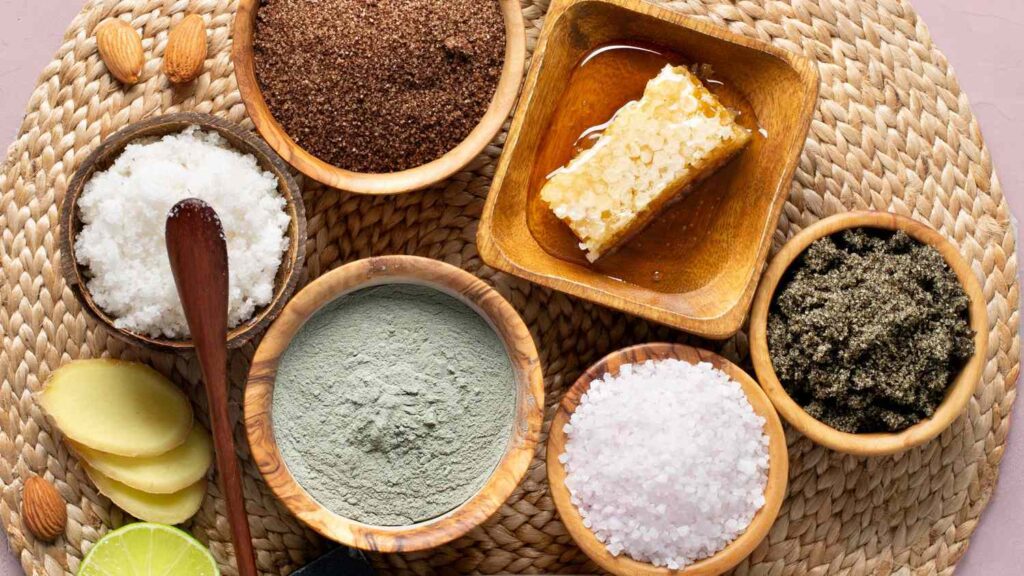Ayurveda, an ancient system of medicine that originated in India more than 5,000 years ago, has become increasingly popular in modern times. This holistic approach to health and wellness focuses on maintaining a balance between the mind, body, and spirit, using natural remedies and lifestyle practices. As people seek alternatives to conventional medicine, Ayurveda offers time-tested solutions that address the root causes of illness and promote overall well-being. In this article, we will explore the principles of Ayurvedic wellness, delve into its natural remedies, and discuss how these ancient practices can be integrated into our modern lives.
The Foundations of Ayurveda

At the heart of Ayurveda is the belief that health and wellness depend on a delicate balance between the mind, body, and spirit. This balance is maintained through three fundamental energies, or doshas: Vata, Pitta, and Kapha. Each person has a unique constitution, or prakriti, which is a specific combination of these doshas. Understanding one’s prakriti is essential for tailoring Ayurvedic practices to individual needs.
- Vata: Composed of air and space, Vata governs movement and communication. It is responsible for breathing, circulation, and the nervous system. When balanced, Vata promotes creativity and flexibility. When imbalanced, it can cause anxiety, dryness, and digestive issues.
- Pitta: Made up of fire and water, Pitta controls metabolism, digestion, and transformation. It is associated with intelligence and determination. A balanced Pitta results in a sharp mind and good digestion, while an imbalance can lead to anger, inflammation, and ulcers.
- Kapha: Consisting of earth and water, Kapha provides structure, stability, and lubrication. It is linked to strength, endurance, and immunity. Balanced Kapha promotes calmness and physical strength, whereas an imbalance can cause lethargy, weight gain, and respiratory problems.
- Ayurvedic Diagnostics and Treatments
Ayurvedic practitioners use various methods to assess an individual’s dosha balance and overall health. These include detailed questionnaires, pulse diagnosis, tongue examination, and observation of physical and emotional traits. Based on this assessment, personalized treatment plans are developed, which may include dietary recommendations, herbal remedies, yoga, meditation, and lifestyle modifications.
- Diet and Nutrition: Ayurveda emphasizes the importance of a balanced diet tailored to one’s dosha. Foods are categorized by their tastes (sweet, sour, salty, bitter, pungent, and astringent) and their effects on the doshas. For instance, Vata individuals benefit from warm, moist, and grounding foods, while Pitta types should favor cooling, non-spicy, and less oily foods. Kapha individuals thrive on light, dry, and warming foods. Eating mindfully and according to one’s dosha helps maintain balance and prevent disease.
- Herbal Remedies: Ayurvedic medicine utilizes a vast array of herbs and spices to treat various ailments and promote health. Commonly used herbs include turmeric (anti-inflammatory and antioxidant), ashwagandha (adaptogen for stress and anxiety), triphala (digestive aid), and tulsi (immune booster). These herbs can be taken in various forms, such as powders, teas, tinctures, and capsules, to harness their healing properties.
- Yoga and Meditation: Integral to Ayurveda, yoga and meditation help harmonize the mind, body, and spirit. Yoga postures (asanas) are selected based on one’s dosha to promote physical and mental balance. Meditation techniques, such as mindfulness and mantra chanting, cultivate inner peace, reduce stress, and enhance self-awareness. Regular practice of yoga and meditation supports overall health and well-being.
- Lifestyle Practices: Ayurvedic wellness encompasses daily routines (dinacharya) and seasonal practices (ritucharya) to maintain dosha balance. Dinacharya includes activities such as oil pulling, dry brushing, self-massage (abhyanga), and proper sleep hygiene. Ritucharya involves adjusting diet and lifestyle according to seasonal changes to stay in harmony with nature. For example, during the hot summer months, cooling practices and foods are recommended to balance Pitta.
Ayurvedic Remedies for Common Modern Ailments
Modern life presents numerous health challenges, such as stress, digestive disorders, and chronic diseases. Ayurveda offers natural remedies that address these issues holistically.
- Stress and Anxiety: Ayurveda recognizes the impact of stress on overall health. To combat stress and anxiety, adaptogenic herbs like ashwagandha and brahmi are recommended. These herbs help the body adapt to stress and improve mental clarity. Practices such as meditation, pranayama (breath control), and restorative yoga also play a crucial role in managing stress.
- Digestive Health: Digestive issues, such as bloating, indigestion, and constipation, are common in modern society. Ayurveda places great emphasis on digestion (agni) and recommends herbs like ginger, cumin, fennel, and triphala to enhance digestive fire and alleviate symptoms. Mindful eating, proper food combinations, and avoiding processed foods are also essential for maintaining digestive health.
- Chronic Diseases: Ayurveda addresses chronic conditions, such as diabetes, arthritis, and cardiovascular diseases, by targeting their root causes and promoting lifestyle changes. For example, turmeric’s anti-inflammatory properties make it effective for managing arthritis, while a Kapha-pacifying diet and regular exercise can help control diabetes and weight.
- Immunity and Vitality: Strengthening immunity and vitality is a core principle of Ayurveda. Herbs like tulsi, amla, and guduchi are known for their immune-boosting properties. A balanced diet, regular exercise, adequate sleep, and stress management are crucial for maintaining a robust immune system.
Integrating Ayurveda into Modern Life

Incorporating Ayurvedic practices into daily life can lead to profound improvements in health and well-being. Here are some practical tips for integrating Ayurveda into a modern lifestyle:
- Know Your Dosha: Start by determining your dosha through self-assessment questionnaires or consultations with an Ayurvedic practitioner. Understanding your dosha helps tailor your diet, lifestyle, and remedies to your unique constitution.
- Mindful Eating: Adopt Ayurvedic dietary principles by eating fresh, whole foods that suit your dosha. Practice mindful eating by savoring each bite, chewing thoroughly, and avoiding distractions during meals. Pay attention to how different foods make you feel and adjust your diet accordingly.
- Daily Routine: Establish a consistent daily routine that includes Ayurvedic practices such as oil pulling, self-massage, and meditation. Aim to wake up and go to bed at the same time each day, and incorporate moments of mindfulness and self-care throughout your routine.
- Seasonal Adjustments: Modify your diet and lifestyle according to the seasons to maintain balance. In the summer, focus on cooling foods and activities, while in the winter, prioritize warming and nourishing practices.
- Herbal Support: Incorporate Ayurvedic herbs and spices into your daily regimen. You can add them to your meals, prepare herbal teas, or take supplements as needed. Consult with an Ayurvedic practitioner to find the best herbs for your specific needs.
- Regular Exercise: Engage in regular physical activity that suits your dosha and personal preferences. Yoga is an excellent choice as it combines physical movement with breath control and mindfulness. Find activities that you enjoy and that promote a sense of well-being.
- Stress Management: Prioritize stress management techniques such as meditation, pranayama, and spending time in nature. Create a peaceful environment at home and work, and practice gratitude and positive thinking.
- Holistic Health: Embrace a holistic approach to health by considering the interconnectedness of the mind, body, and spirit. Seek balance in all aspects of life, including work, relationships, and personal growth.
Conclusion
Ayurveda offers a comprehensive and holistic approach to health and wellness that is particularly relevant in our modern world. By focusing on natural remedies, personalized care, and balance, Ayurveda addresses the root causes of illness and promotes overall well-being. Integrating Ayurvedic practices into daily life can lead to improved health, reduced stress, and a deeper connection with oneself and the natural world. As we continue to navigate the challenges of modern life, the ancient wisdom of Ayurveda provides a valuable guide to achieving lasting wellness.





